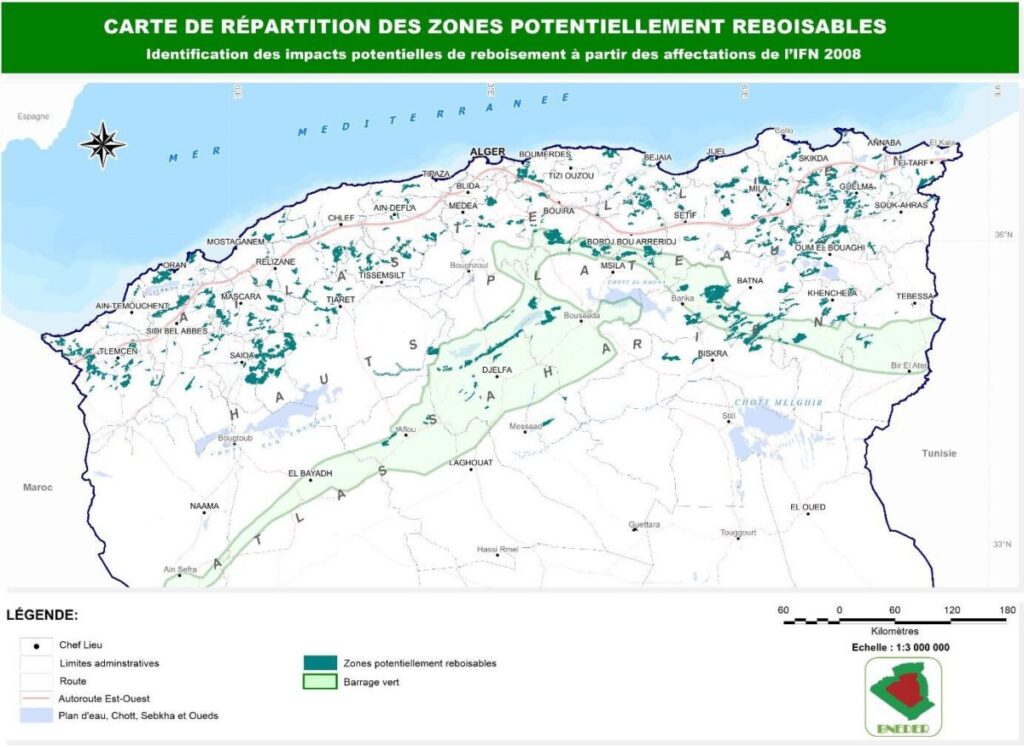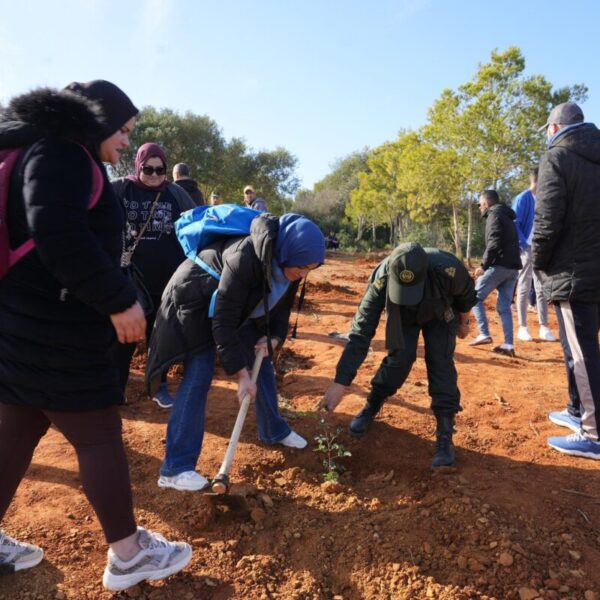#3 Decarbonization and Carbon Markets
Algeria is experiencing fires that cause it to lose part of its forest heritage, which extends over more than 4 million hectares, every year. In this country where the economic model is based on fossil fuels, Sonatrach, the national hydrocarbon company, has decided to embark on an ambitious decarbonization program by 2033. The goal: to plant 423 million trees.
On Wednesday, December 11, 2024, on the occasion of International Mountain Day, Sonatrach and the General Directorate of Forests (DGF) signed an agreement aimed at implementing a forestry project for the creation of certified natural carbon sinks. This decarbonization project is titled "Restoration of Forest Landscapes in the Context of Climate Change" (RPFCC). For its implementation, the hydrocarbon company – the leading operator in the sector – has allocated a financial envelope of one billion US dollars. According to the memorandum of understanding, the principle of this program aims to enable the company to "rise to international standards in terms of the preservation and restoration of natural environments and ecosystems." In Algeria, the energy sector is responsible for 75% of greenhouse gas (GHG) emissions. Emissions that result from energy consumption (46%), the production, processing, and transportation of hydrocarbons (20%), and the liquefaction of natural gas (8%).
Forest Rehabilitation
Specifically, the RPFCC consists of planting 423 million tree seedlings by 2033 over an area of 520,000 hectares. To achieve this, the General Directorate of Forests has identified three types of actions. First, the creation of new plantations on bare lands in mountainous areas, protected areas, and pre-Saharan territories. Then, the rehabilitation of degraded forests, both natural and artificial, following fires and diseases, through the introduction of more resilient species. Finally, the development of agroforestry with the planting of hardy fruit trees such as olive, carob, almond, and pistachio trees in rural areas. For this last category, the operations will be subject to concessions benefiting the inhabitants of these areas for a duration of 40 years. According to a study by Sonatrach, this program will allow, starting in 2033, a potential carbon sequestration estimated between 11.7 and 19.7 million tons eq CO2.
Strengthening the Green Barrier
This project will help strengthen the "green barrier" that extends across the country from east to west. Launched in the early 1970s by President Houari Boumediene, this program has created a true green belt on the high plateaus to slow the advance of the desert to the north. In 2023, the Algerian authorities decided to rehabilitate it by planting trees over an area of 400,000 hectares in 13 wilayas (departments). This first phase is expected to be completed by 2027. According to experts, the first results are already noticeable as in some regions the vegetation cover has helped stabilize dunes.

Featured photo: Reforestation operation conducted by the company ©Sonatrach
